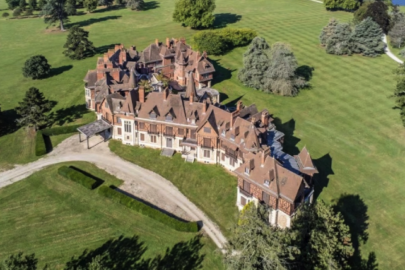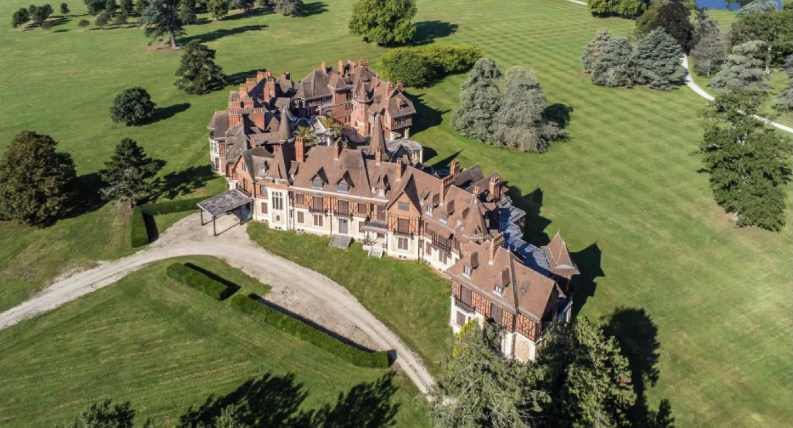On her website, 24-year-old German woman Carolin Matthie describes herself as a “model, author and influencer”. In recent months, however, she is better known for the gun she carries in a holster, tucked into the small of her back.
Now the Berlin university student is the poster girl for a growing number of Germans arming themselves with pepper spray, knuckle-dusters and other accessories of angst.
Matthie bought her gun after a close encounter in the summer of 2016. Walking home to her university dorm in a deserted area of the capital, six men began following her and shouted drunkenly after her in an unfamiliar language.
The men only disappeared, she said, when a security company car, on its hourly round, passed by chance.
Afraid she wouldn’t be so lucky a second time around, Matthie paid €50 for a gun licence and €189 for a Walther P99 air pistol. It looks like the real thing but is more a deterrent, she says, though she has not yet needed to draw it in public.
“Now I know what I can do in an emergency, I have a plan if I’m attacked and that feels better,” she told The Irish Times.
Raised in a country village, Matthie says she and her friends now often talk of a growing feeling of insecurity in Berlin. It’s a discussion she tracks back to the peak of Germany’s refugee crisis two years ago, when more than one million people arrived in the country within 12 months.
Germans’ initial welcome cooled after the Cologne new year’s attacks of two years ago, when gangs of young men – many of northern African origin – groped and raped women in the western German city.
Attacks on women
In the following six months, as a debate raged over the loss of public control in Germany, the number of applications for so-called “minor gun licences” – required to own an air pistol in Germany – jumped 75 per cent to 524,000.
Though numbers have steadied since, gun dealers see a correlation between sales spikes and new attacks on women by asylum seekers and refugees.
Last week, an Afghan asylum seeker claiming to be 15 – though suspected of being older – stabbed to death his 15-year-old ex-girlfriend in a jealous rage with an eight-inch kitchen knife.
Meanwhile, the trial is ongoing of an Iranian asylum seeker, who claimed to be 16 but has since admitted he is 33, for the rape and murder of a woman jogger in 2016.
German police insist that, despite a series of horrific crimes carried out by individual asylum seekers and refugees posing as minors, the juvenile crime rate is dropping.
A recent crime study in the state of Lower Saxony showed juvenile robberies down more than half on two decades ago, while minors carried out one-third fewer murders and manslaughters in the same period. However, the same report linked a disproportionate number of crimes to juvenile asylum seekers, both successful and failed, and other “illegal” groups.
In 2016, juvenile migrants carried out 3.5 times more crimes than two years earlier, the report said, although the refugee crisis saw the number of asylum seekers in Lower Saxony double in the same period.
Migrant groups
Far from proof of an explosion in refugee crime, the report’s authors make other qualifications – in particular how, in any population group, 14-30-year-old males are always the most criminal age cohort.
Finally, the report found a clear distinction between migrant groups, with no noticeable criminal statistic spike among young migrants from Syria, Afghanistan and Iraq. The big problem are youths and young men from Morocco, Algeria and Tunisia who, in 2016, comprised just 0.9 per cent of the population of Lower Saxony but 17.1 per cent of criminal suspects.
The report’s bottom line: while there has been an increase in criminality from some refugee groups, the situation is too complicated to talk of an explosion in crime requiring a draconian crackdown.
But that is precisely the refrain of the far-right Alternative für Deutschland (AfD) and anti-Muslim Pegida group. The Dresden-based group has warned for years about an “invasion” of “rapefugees” while, this week, AfD deputy leader Beatrix von Storch was temporarily banned from Twitter after accusing German police of pandering to “barbaric, Muslim, gang-raping hordes of men”.
Rather than carry her air pistol forever, Carolin Matthie would like German politicians to accept responsibility for growing public insecurity and respond with greater police spending and greater transparency in criminal statistics.
“If someone attacks me, it’s immaterial to me if he is German or Arabic, what bothers me is when reporting and statistics play down the origin of the attacker,” she said. “We have a real problem with certain population groups, but because that is air-brushed out, people no longer believe criminal statistics and drift away to fringe parties. And they tar all Turks and Arabs with the same brush.”
Source: irishtimes

































